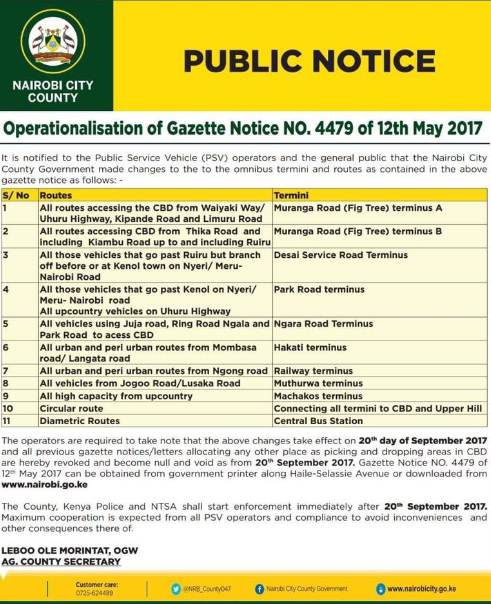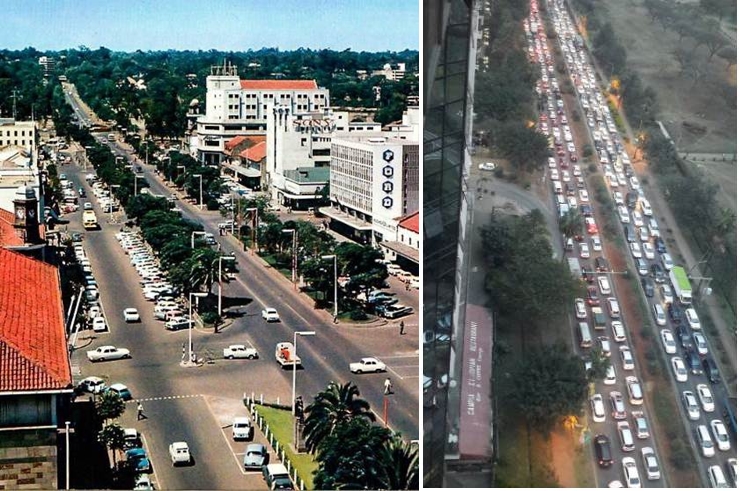Starting on Wednesday, 20th September 2017, public service vehicles (PSVs) will not be allowed to drop and pick passengers within the CBD, as is the norm. This ban revokes any previously issued gazette notices or letters allocating Matatu termini.

Kenyans reacted variously to this ban which will hit matatu commuters hardest. One group hailed the move, saying that it will ease congestion and improve Nairobi’s aestheticism. They blame matatus for chaotic scenes characteristic of the CBD. Others noted that matatus overcrowding the CBD contribute to petty crime common in the capital’s hub.
Another group in support of the ban notes that matatus are to blame for gridlock jams that are common during rush hours. According to government statistics, time and fuel wasted in traffic jams results in loss of productivity that is equivalent to $578,000 a day. This translates to about Kshs 59 million.
On the other hand, opponents note that the ban is unfair to the poor, who mostly use matatus as their primary means of transport. Most will be forced to folk out more for boda boda or taxi rides, which are insanely costly, to get to their final destinations.
Let’s take Wambui’s case for instance. She resides in Eastlands part of Nairobi and works in Westlands. According to the public notice the county government issued, she will have to alight in Muthurwa and walk to her place of work. The shortest distance is a bout 5km, walking through Ring Road, Ngara. This is not to mention the inconveniences she will have to bear should it start to rain.
Another group opines that personal cars are actually the biggest contributers of traffic jams and should be banned instead of matatus. Thhe argument holds water since a personal car carries one or two passengers while the smallest matatu carries 11 passengers.
[irp]
It remains to be seen whether matatu owners will take this lying low or will resort to their characteristically crippling strikes.

Leave a Comment